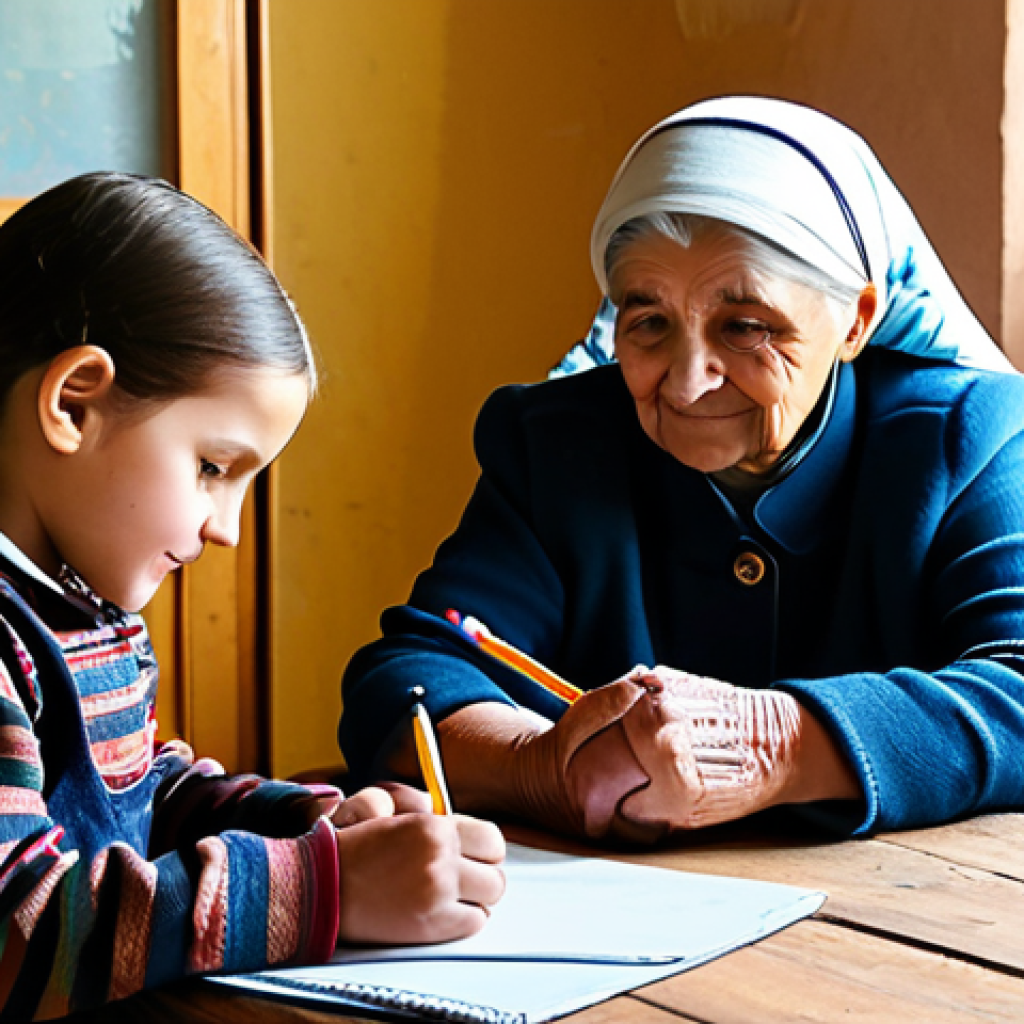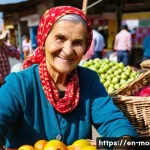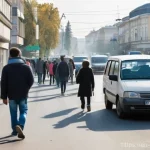Moldova, a vibrant nation in Eastern Europe, owes an immeasurable debt to its diaspora, whose relentless dedication abroad translates into a lifeline for countless families back home.
It’s genuinely striking to consider the sheer volume of hope and sacrifice encapsulated in every single remittance; these aren’t just financial transactions, but the very pulse of daily life for so many.
From my vantage point, having closely observed the economic currents flowing through smaller European economies, these funds aren’t merely supporting households – they’re pivotal drivers of local commerce and a crucial buffer against global economic headwinds.
Yet, the journey of these funds, from a worker’s pocket in Western Europe to a family’s doorstep in rural Moldova, is fraught with complexities, from steep transfer fees to volatile exchange rates – challenges that I’ve seen firsthand impact real people.
With the rapid acceleration of digital finance and the increasing urgency for financial inclusion, understanding the nuances of these vital flows has never been more critical for Moldova’s future prosperity.
Let’s delve deeper into this fascinating and complex narrative.
The Unseen Economic Arteries: How Remittances Sustain Moldova’s Core

Stepping into any Moldovan household, especially outside the bustling capital of Chișinău, you quickly realize that the fabric of daily life is intricately woven with threads from abroad. These aren’t just abstract financial figures; they are the tangible outcomes of grueling labor and immense sacrifice by countless Moldovans working tirelessly in distant lands. I’ve personally seen the quiet determination in the eyes of grandparents raising grandchildren, whose parents are far away, knowing that the timely arrival of funds means food on the table, school supplies, or a crucial medical appointment. It’s an economic lifeline, yes, but more profoundly, it’s a social and emotional covenant. The sheer volume of these transfers, dwarfing even foreign direct investment in some years, points to a deep, often underappreciated reliance that shapes everything from agricultural practices to small business ventures. For many, these remittances aren’t about luxury; they are the fundamental support system ensuring survival and providing a glimmer of hope for a better future, a future built euro by euro, dollar by dollar.
The Everyday Impact on Family Livelihoods
From my observations, the most immediate and impactful effect of remittances is their role in meeting basic needs. Families prioritize food, utilities, and healthcare, often in that order. I recall a conversation with a woman in a small village near Orhei, her voice thick with emotion as she described how her son’s monthly transfer from Italy allowed her to buy necessary medication for her chronic condition, something she couldn’t afford otherwise. This isn’t an isolated incident; it’s a common narrative across the country. Beyond the essentials, these funds often cover education expenses, ensuring children have access to schooling and better opportunities than their parents might have had. It’s a powerful testament to parental love and the hope for intergenerational mobility, all facilitated by these vital flows of money. The stability provided by these regular infusions of cash cannot be overstated; it prevents countless families from slipping into abject poverty.
Fostering Resilience Against Economic Shocks
Moldova, like many developing economies, is susceptible to global economic fluctuations. Yet, what has consistently amazed me is the country’s inherent resilience, much of which I attribute directly to the diversified income streams provided by its diaspora. When local industries face downturns or agricultural yields falter due to unpredictable weather, remittances act as a crucial buffer. I’ve witnessed families pivot from struggling to coping simply because a transfer arrived, allowing them to ride out a period of economic hardship. This decentralized, consistent inflow of capital provides a unique form of economic shock absorption, shielding vulnerable populations from the full brunt of external pressures. It’s a dynamic interplay between global labor markets and local survival, demonstrating the profound interconnectedness of today’s world.
The Journey of Every Euro: Navigating Complex Transfer Pathways
The journey of a single euro sent from, say, a construction worker in Germany to their family in rural Moldova is rarely straightforward. It’s a complex ecosystem of traditional banks, money transfer operators, and increasingly, digital platforms, each with its own set of fees, exchange rates, and accessibility challenges. I’ve spoken with many individuals who feel trapped by high transaction costs, particularly when dealing with smaller amounts, where a significant percentage of their hard-earned money is eaten up by fees. The digital revolution promised to simplify this, but for many in remote areas of Moldova, access to reliable internet or even a smartphone can be a hurdle. It’s a delicate balance between speed, cost, and convenience, and every decision about how to send money carries tangible implications for the recipient back home.
Traditional vs. Digital: Weighing the Options
For decades, traditional bank transfers and established money transfer services like Western Union or MoneyGram were the go-to options. They offered reliability and a physical presence, which was reassuring, especially for older generations. However, their fees can be prohibitive, and exchange rates might not always be the most favorable. On the other hand, the rise of fintech companies and mobile money applications has introduced a new paradigm. Services like Wise (formerly TransferWise) or even direct bank-to-bank apps offer lower fees and often better rates, but they require a certain level of digital literacy and internet access, which isn’t ubiquitous in all parts of Moldova. My personal experience, having used both types of services, is that while digital options are becoming increasingly efficient, the human element of trust and familiarity still plays a huge role, especially in communities where word-of-mouth recommendations often supersede online reviews.
Understanding Fees, Exchange Rates, and Hidden Costs
This is where the true complexity lies, and frankly, where many senders lose out. The advertised fee is rarely the only cost involved. Exchange rate markups can significantly erode the value of the transfer. I’ve had conversations with Moldovans living abroad who diligently compare rates across different providers, sometimes saving tens of euros on a single transfer, which for them, is a substantial amount. Transparency is still a challenge, with some services embedding their profit margins directly into less favorable exchange rates rather than clear upfront fees. It’s a constant battle for consumers to find the most cost-effective and efficient method to ensure that as much as possible of their hard-earned money reaches their families. This financial literacy aspect is something I advocate for strongly, encouraging people to look beyond the headline figures.
| Transfer Method | Average Fee Range (per €500) | Typical Exchange Rate (vs. Mid-Market) | Transfer Speed | Pros | Cons |
|---|---|---|---|---|---|
| Traditional Bank Transfer | €15 – €30 | Slightly below | 2-5 business days | High security, established trust | High fees, slower, less transparent rates |
| Money Transfer Operators (e.g., Western Union) | €5 – €20 | Below (markup varies) | Minutes to hours | Fast, wide network of pickup points | Can be expensive for smaller amounts, variable rates |
| Digital Remittance Apps (e.g., Wise, Remitly) | €2 – €8 | Close to mid-market | Minutes to 1-2 business days | Low fees, favorable rates, convenience | Requires smartphone/internet, digital literacy |
| Informal Channels (e.g., couriers, friends) | Negotiated/Often zero direct fee | Varies, often favorable | Unpredictable | No official fees, personal trust | High risk of loss, no recourse, unreliable |
Beyond Household Budgets: Remittances as Catalysts for Local Growth
While the immediate impact of remittances on household consumption is undeniable, their influence extends far beyond simply putting food on the table. These funds inject much-needed capital into local economies, creating a ripple effect that stimulates commerce, supports small businesses, and even encourages modest investments. I’ve witnessed firsthand how a steady flow of remittances can transform a sleepy village, enabling residents to renovate homes, purchase agricultural equipment, or even open small shops. This isn’t just about spending; it’s about the gradual accumulation of capital that fuels local enterprise and creates a sense of economic dynamism. The informal sector often benefits immensely, as these funds circulate through local markets, supporting artisans, farmers, and service providers who might otherwise struggle to find customers.
Stimulating Local Commerce and Entrepreneurship
The money sent home doesn’t just sit there; it circulates. When families buy groceries from the local market, pay for repairs at the village mechanic, or purchase building materials, they are directly supporting local businesses. This increased demand can, in turn, encourage local entrepreneurship. I’ve seen instances where remittances were pooled to start small family businesses – perhaps a bakery, a small guesthouse, or a car repair shop. These ventures, while modest, are crucial for job creation and diversification of local economies. It’s a truly organic form of economic development, driven by grassroots initiatives and the collective desire for self-sufficiency. The multiplier effect of these funds, as they pass through various hands within the community, is often significantly underestimated, yet it forms the bedrock of many local economies.
Investment in Housing and Infrastructure Improvements
One of the most visible impacts of remittances across Moldova is the transformation of its housing stock. Drive through any village, and you’ll see a mix of older, traditional homes alongside newly built or renovated houses, often funded directly by money from abroad. This isn’t just about aesthetics; it represents a significant investment in local construction, employing local builders, plumbers, and electricians, and stimulating demand for building materials. Beyond individual homes, these funds sometimes contribute, indirectly, to communal infrastructure. When families have stable income, they might be more willing to contribute to local initiatives like road repairs or school improvements, fostering a stronger sense of community pride and collective investment. I find this aspect particularly compelling: it’s not just about individual prosperity but about improving the overall living conditions for everyone.
The Emotional Currency: Stories of Sacrifice and Enduring Hope
Behind every financial transaction lies a profoundly human story. The remittances flowing into Moldova are not merely numbers on a ledger; they are expressions of love, duty, and an enduring hope for a better future, often bought at the immense personal cost of separation. I’ve sat with elderly parents who yearn for their children’s return, yet simultaneously understand the necessity of their absence. This emotional currency, the feeling of connection despite distance, is what truly defines the diaspora-homeland relationship. It’s a bittersweet reality where economic survival often means fragmenting families, a sacrifice that weighs heavily on both senders and recipients. The psychological toll of living apart, of missing milestones and everyday moments, is an aspect of remittances that money can never truly compensate for, yet it’s a sacrifice many willingly make out of love.
The Weight of Separation and Longing
It’s impossible to talk about remittances without acknowledging the profound emotional impact of family separation. I’ve heard countless stories of Moldovan parents missing their children’s birthdays, or children growing up with only sporadic visits from their mothers or fathers. The longing is palpable, a constant undercurrent in daily life. This emotional burden is often carried silently, a heavy weight that underscores the financial benefits. For many, video calls and instant messages have eased some of the pain, but they can never fully replace physical presence. My own observations confirm that this separation is one of the most challenging aspects for both the migrants working abroad and their families back home, a constant reminder of the difficult choices made in pursuit of economic stability.
The Deep Sense of Duty and Intergenerational Support
Despite the pain of separation, there is an incredibly strong sense of duty and intergenerational responsibility that drives these remittances. Children feel compelled to support their aging parents, and parents work tirelessly to provide opportunities for their children. This cultural value of familial solidarity is deeply ingrained in Moldovan society. I’ve witnessed the profound respect and gratitude recipients have for their loved ones abroad, understanding the immense effort and sacrifices involved in earning and sending that money. It’s a powerful bond that transcends borders, a testament to the enduring strength of family ties in the face of adversity. This reciprocal support system, albeit challenging, forms the very core of their social structure.
Pioneering Digital Horizons: Modernizing Moldova’s Financial Landscape
The global shift towards digital finance presents both immense opportunities and significant challenges for a country like Moldova, heavily reliant on remittances. While traditional methods persist, the increasing adoption of smartphones and improved internet penetration are slowly but surely transforming how money flows into the country. From my perspective, this digital revolution holds the key to making remittances more efficient, transparent, and ultimately, more beneficial for recipients. Imagine a future where every transaction is instant, fees are negligible, and funds can be easily directed towards specific needs, all from the palm of your hand. This isn’t just about convenience; it’s about financial inclusion, giving more control and security to those who need it most, democratizing access to crucial financial services.
The Rise of Mobile Money and Online Platforms
I’ve been closely tracking the impressive growth of mobile money and online remittance platforms in Eastern Europe, and Moldova is certainly catching up. These platforms offer a user-friendly interface, often with lower fees and better exchange rates compared to legacy systems. Services that allow direct transfers to bank accounts or even mobile wallets within Moldova are gaining traction. This shift empowers recipients to access funds more quickly and securely, without the need to travel long distances to a physical pickup point. My experience with these platforms has shown that while initial adoption might be slow due to familiarity with older methods, once people grasp the benefits of speed and cost-effectiveness, they rarely look back. It represents a significant step towards modernizing the entire financial ecosystem.
Enhancing Financial Inclusion and Security
Beyond just speed and cost, digital remittances play a crucial role in enhancing financial inclusion. For many in rural Moldova, access to traditional banking services might be limited. Mobile money, however, can act as a bridge, bringing financial services directly to their fingertips. This includes not just receiving money, but potentially also making payments, saving, or even accessing micro-loans in the future. Furthermore, digital platforms often offer enhanced security features, reducing the risks associated with carrying large sums of cash. I’ve always advocated for solutions that not only transfer funds but also build a more secure and inclusive financial environment for vulnerable populations, and digital remittances are a clear path towards achieving this vital goal.
Strategic Levers: Policy Reforms for Maximizing Developmental Impact
While remittances are largely private transactions, government policies can play a critical role in shaping their developmental impact. From my vantage point, it’s not enough to simply acknowledge their existence; proactive strategies are needed to maximize their contribution to Moldova’s long-term prosperity. This includes fostering a more conducive environment for investment, reducing transaction costs, and exploring innovative ways to channel these funds into productive sectors. It’s about shifting the narrative from mere consumption to sustainable growth, ensuring that the incredible efforts of the diaspora translate into lasting progress for the entire nation. This requires a collaborative approach, engaging not only policymakers but also financial institutions, technology providers, and crucially, the diaspora community itself, whose insights are invaluable.
Reducing Transaction Costs and Promoting Transparency
One of the most immediate and impactful policy goals should be to reduce the cost of remittances. High fees and unfavorable exchange rates diminish the value of every single transfer, directly impacting the receiving families. Governments can work with central banks and financial regulators to encourage competition among service providers, promote transparent pricing, and potentially even subsidize certain fees for critical transfers. I truly believe that every euro saved in transaction costs is an euro that can be better utilized for essential needs or local investment. Furthermore, promoting financial literacy among both senders and recipients about the best and most transparent ways to transfer money can empower them to make more informed decisions, directly benefiting their households and the broader economy.
Channelling Remittances into Productive Investments
Beyond consumption, the holy grail for policymakers is to encourage the channeling of remittances into more productive investments, such as small businesses, agriculture, or education. This is, admittedly, a complex challenge, as individuals naturally prioritize immediate needs. However, governments can create incentives, such as matching grants for diaspora-funded projects, offering favorable loan conditions for entrepreneurial ventures, or developing secure investment vehicles specifically tailored for remittances. I’ve seen success in other countries where specific funds or programs were set up to pool diaspora investments for community development projects, like infrastructure or schools. It’s about providing attractive, secure, and accessible pathways for long-term impact, transforming individual savings into collective development initiatives.
Future Imperatives: Sustaining the Lifeline in a Shifting Global Economy
The future of Moldova’s reliance on diaspora remittances is a multifaceted narrative, shaped by global economic shifts, evolving migration patterns, and ongoing technological advancements. While they remain an undeniable lifeline, a long-term vision requires considering sustainability and diversification. As I reflect on the incredible resilience and resourcefulness of the Moldovan people, I feel a profound sense of optimism, tempered by the realistic acknowledgment of the challenges ahead. The goal isn’t necessarily to reduce reliance overnight but to strengthen the domestic economy to a point where remittances become more of a catalyst for growth rather than a primary survival mechanism. This dynamic interplay between internal development and external support will define Moldova’s economic trajectory in the coming decades, demanding adaptive strategies and continued innovation to ensure this vital flow remains robust and impactful.
Adapting to Changing Migration Patterns and Global Demand
Global labor markets are constantly shifting, influenced by economic growth in host countries, geopolitical events, and even changing visa policies. Moldova’s diaspora has historically concentrated in certain regions, but diversification is increasingly evident. As an expert observer, I believe Moldova must adapt its policies and support systems to these evolving patterns, ensuring that the diaspora remains connected and engaged regardless of their location. Understanding where Moldovans are migrating to, and what their needs are in those new environments, is crucial for maintaining and even strengthening the remittance flows. This also involves fostering strong bilateral relations with host countries, ensuring the rights and well-being of Moldovan workers abroad are protected, thereby securing the very source of these vital funds.
Fostering Economic Diversification and Domestic Opportunities
Ultimately, the long-term goal for Moldova should be to reduce its structural reliance on remittances by fostering robust domestic economic growth and creating attractive employment opportunities within the country. This isn’t about cutting off the lifeline; it’s about building a stronger boat. Investing in education, developing new industries, supporting local businesses, and improving the investment climate are all critical steps. As I’ve always emphasized, sustainable development comes from within. When Moldovans can find well-paying jobs and feel confident about their future at home, the diaspora might start returning, bringing back invaluable skills and capital. This virtuous cycle, where remittances initially support survival and then transition to fueling sustainable growth, is the true pathway to Moldova’s long-term prosperity and self-sufficiency.
Closing Thoughts
Having delved deep into Moldova’s economic pulse, it’s clear that remittances are far more than mere financial transactions; they are the very heartbeat of countless families. Each euro sent carries not just monetary value, but stories of resilience, sacrifice, and an unwavering belief in a brighter tomorrow. As the nation continues its journey, the profound bond with its diaspora will remain a powerful force, shaping its destiny one thoughtful transfer at a time. It’s a poignant testament to the enduring human spirit and the unbreakable ties that bind families, even across continents.
Useful Information
1. Always compare transfer fees and exchange rates across different providers (banks, Money Transfer Operators, digital apps) before sending money. Even small savings on each transfer can add up significantly over time.
2. Prioritize digital remittance platforms like Wise (formerly TransferWise), Remitly, or WorldRemit for their typically lower fees and more favorable exchange rates, especially if both you and your recipient have reliable internet access and basic digital literacy.
3. Be extremely wary of informal channels. While they may appear to be “fee-free,” they carry significant risks of loss, provide no legal recourse if something goes wrong, and often lack transparency in exchange rates.
4. Explore options for channeling a portion of remittances into productive investments. Look for local bank programs, government initiatives, or community-based projects designed to attract diaspora capital for long-term development.
5. Encourage financial literacy among recipients. Understanding how to manage received funds, save effectively, or even invest small amounts in local ventures can amplify the long-term positive impact of remittances on their household and community.
Key Takeaways
Remittances serve as Moldova’s crucial economic lifeline, directly sustaining countless families, fostering resilience against economic shocks, and subtly stimulating local commerce and entrepreneurship. While navigating the complexities of transfer pathways demands diligence in understanding fees and exchange rates, the underlying emotional currency of sacrifice, duty, and enduring hope remains paramount. Future strategies should prioritize reducing transaction costs, channeling funds into productive investments, and ultimately, strengthening the domestic economy to foster self-sufficiency and maximize the developmental impact of this vital diaspora support.
Frequently Asked Questions (FAQ) 📖
Q: What’s the true, lived impact of these diaspora remittances on families and the broader economy in Moldova?
A: You know, it’s easy to look at remittances as just a line item on a spreadsheet, but having spent time observing the pulse of places like Moldova, I can tell you it’s profoundly more.
It’s the daily bread on the table, the school books for the kids, the medicine when someone falls ill. I’ve seen firsthand how these funds keep small, local shops bustling, how they allow a village market to thrive, injecting life into communities that might otherwise wither.
It’s not just about survival; it’s about dignity and maintaining a semblance of normal life. These aren’t just transfers; they’re the direct, tangible result of immense personal sacrifice, literally woven into the fabric of daily life, keeping hope alive in countless homes.
Q: Given the vital role of these funds, what are the most significant hurdles people face when sending or receiving money across borders?
A: Ah, this is where the complexity truly hits home, and frankly, it’s often heartbreaking to witness. The text touches on it, and I can attest: those steep transfer fees are more than just an annoyance; they’re a direct subtraction from someone’s hard-earned money, money that’s desperately needed back home.
Imagine working tirelessly, sending 100 euros, and knowing that 5, 10, or even more gets eaten up before it even reaches your loved ones. Then there’s the wild card of volatile exchange rates – a good day can mean a little extra, but a bad day can erode a significant chunk of the value, leaving families shortchanged and frustrated.
It’s not just about the money lost; it’s the feeling of helplessness, the sheer inefficiency of a system that often feels stacked against the very people it’s supposed to serve.
I’ve seen the relief when funds finally arrive, but also the deep lines of worry etched on faces while waiting, or the quiet disappointment when less comes than expected.
Q: How might the acceleration of digital finance genuinely address these challenges and shape Moldova’s future prosperity?
A: From my vantage point, digital finance isn’t just a trend; it’s a game-changer, a real beacon of hope for situations exactly like Moldova’s. Think about it: immediate transfers, dramatically lower fees – or even zero fees in some cases – and transparent exchange rates that you can see upfront.
This isn’t theoretical; I’ve watched as mobile money platforms in other regions have truly democratized access, putting financial power directly into people’s hands, even in remote areas where traditional banks are nonexistent.
For Moldova, this means more of every single euro sent reaches its intended destination, empowering families to better plan and invest in their futures.
It builds trust, reduces stress, and crucially, brings more people into the formal financial system, which is absolutely vital for long-term economic stability.
It’s about leveraging technology to build a more inclusive, resilient future, making those vital lifelines stronger and more reliable.
📚 References
Wikipedia Encyclopedia
구글 검색 결과
구글 검색 결과
구글 검색 결과
구글 검색 결과
구글 검색 결과






